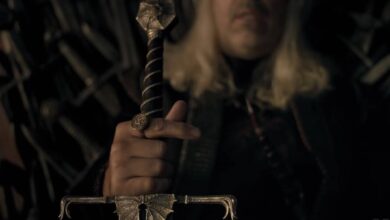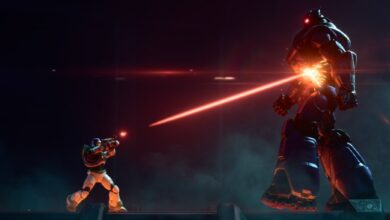Longlegs Ending Explained: Why Can’t Lee Shoot the Doll? What Happens to the Families Targeted by Longlegs?
Longlegs Ending Explained: Longlegs, the latest installment directed by Osgood Perkins, takes us into the world of serial killers with a mix of supernatural horror and crime. The story follows Lee Harker (played by Maika Monroe), a young FBI agent who is faced with a series of unexplained murders committed by a killer known only as “Longlegs“, played by Nicolas Cage. As Harker delves deeper into the case, she discovers that the deaths are linked to occult practices and that the killer manipulates families into committing these crimes through the use of dolls with supernatural abilities. Among the most convincing horror films of recent times, as we explained in our review of the film, there is undoubtedly Longlegs by Oz Perkins. Starring an unrecognizable and already iconic Nicolas Cage and the astonishing Maika Monroe, Longlegs combines a mystery “a la” Seven and The Silence of the Lambs with numerous elements of supernatural horror: the viewer is captured by a well-developed plot and particularly disturbing atmospheres that permeate the entire vision.
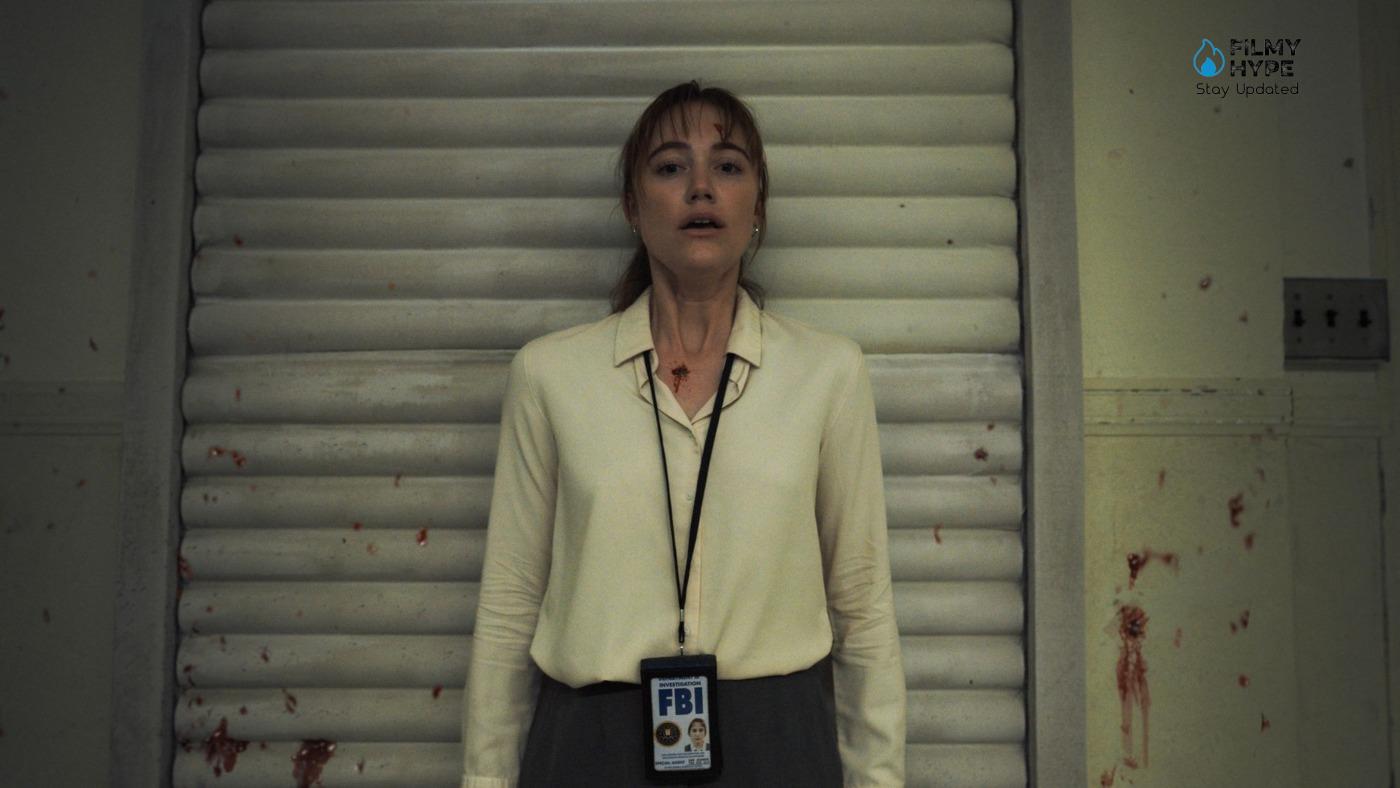
But what is Longlegs about? A young FBI agent, Lee Harker, is drawn into the investigation of a shocking case: a serial killer has exterminated entire families for decades, but never seems to have physically entered their homes. To prove his guilt, coded letters that the killer leaves at the crime scenes, in which however the actual perpetrator of the murders is always the father of the families. How do Longlegs convince strangers to commit such terrible acts? What links the families together? As Lee will discover, it is a complicated scheme that crosses dates and Satanist symbolism, the daughters of each chosen family were always born on a particular day. Over time Lee, who has an almost supernatural intuition for the killer’s moves, will discover that she too is linked to Longlegs‘ murders: when she was a child she had met him…
Longlegs Ending Explained: Why Can’t Lee Shoot the Doll?
The ending of Longlegs is one of the most shocking and disturbing moments of the entire film, full of surprises and unexpected revelations. The film ends with the arrest of the protagonist, the murderer played by Nicolas Cage. After deciphering many of the letters left by Longlegs at the crime scenes, Agent Lee Harker revisits her past and discovers that she was one of the girls targeted by the killer. A photo she had taken of him finally reveals Longlegs‘ identity and finally allows the FBI to capture him. It will be Lee, who he says he knows very well, who subjects him to one last interrogation: Longlegs talks about a “friend of a friend” who lives “downstairs” and kills himself by repeatedly banging his head on the table to which he is handcuffed.
Shocked by what happened, Lee is the only one who would like to continue the investigation, because she is convinced that Longlegs had an accomplice to carry out all the murders, but her colleagues want to close the case. Harker then decides to visit his mother once again to discover the truth about her meeting with Longlegs when she was still a child. The woman, however, unexpectedly kills Lee’s colleague and destroys the doll that represents her daughter. Lee, like Carrie Anne, had received a doll made by Longlegs with her likeness. The girl faints after Ruth destroys it, stating that Lee is now finally free. While unconscious, she dreams about what happened when she was a child: Longlegs‘ accomplice had always been her mother Ruth, who had made a pact with the killer to save her. Ruth had to deliver the handmade dolls to every family that had been Longlegs‘ victims, making sure that the murders were carried out as Longlegs had.
The dolls were a kind of emissary of Satan, of whom Longlegs was a faithful devotee; for this reason, once they were brought into the house, the fate of the families was already decided: the father would go mad and exterminate all the others. After waking up to find that Longlegs had been living in her mother’s basement all this time, Lee receives a disturbing phone call. A demonic voice tells her she is late for Agent Carter’s daughter Ruby’s birthday. So Lee goes to Agent Carter’s family, but her mother has already arrived with yet another demonic doll: Lee is unable to stop the man before he kills his wife, but after fatally shooting her mother, she manages to save the little girl. However, when she tries to shoot the doll, the gun jams.
Why Can’t Lee Shoot the Doll?
Lee attempts to shoot the doll in the same way Ruth shot hers, thus freeing Ruby from the object’s evil influence. The bullets appear to be out or the safety is on (unlikely given that Lee has just killed her mother). Lee could perhaps reload the gun but remains frozen, almost hypnotized by the doll: Longlegs‘ creation seems to influence her too, somehow preventing her from destroying it. It is possible, therefore, that at the end of the film, Harker finds himself under the influence of the doll and, consequently, of Longlegs. Lee is likely drawn to the doll because Longlegs, who lived under her house throughout her childhood, has marked much of her life. Through the doll, Longlegs is still able to extend his presence beyond death. His influence is still tangible, and the doll could keep Harker in its power until the “task” is completed. Ruby is still alive, and Longlegs could use Lee to finish what he and Ruth started.
What Happens to the Families Targeted by Longlegs?
Longlegs creates hand-made dolls that Ruth delivers to each family. Inside the dolls is a hollow metal sphere, which seems to whisper (as the coroner who analyzes Carrie Anne’s doll states) something to those who are near the object. This disturbing sound puts the family members into a trance from which they cannot emerge, forcing the father to kill all the other members. During the film we discover that Longlegs puts something of himself inside each doll, which is also, as we said, a sort of emissary of the Devil himself: it is Longlegs and the Devil who whisper to the families through the dolls, thus leading them to death.
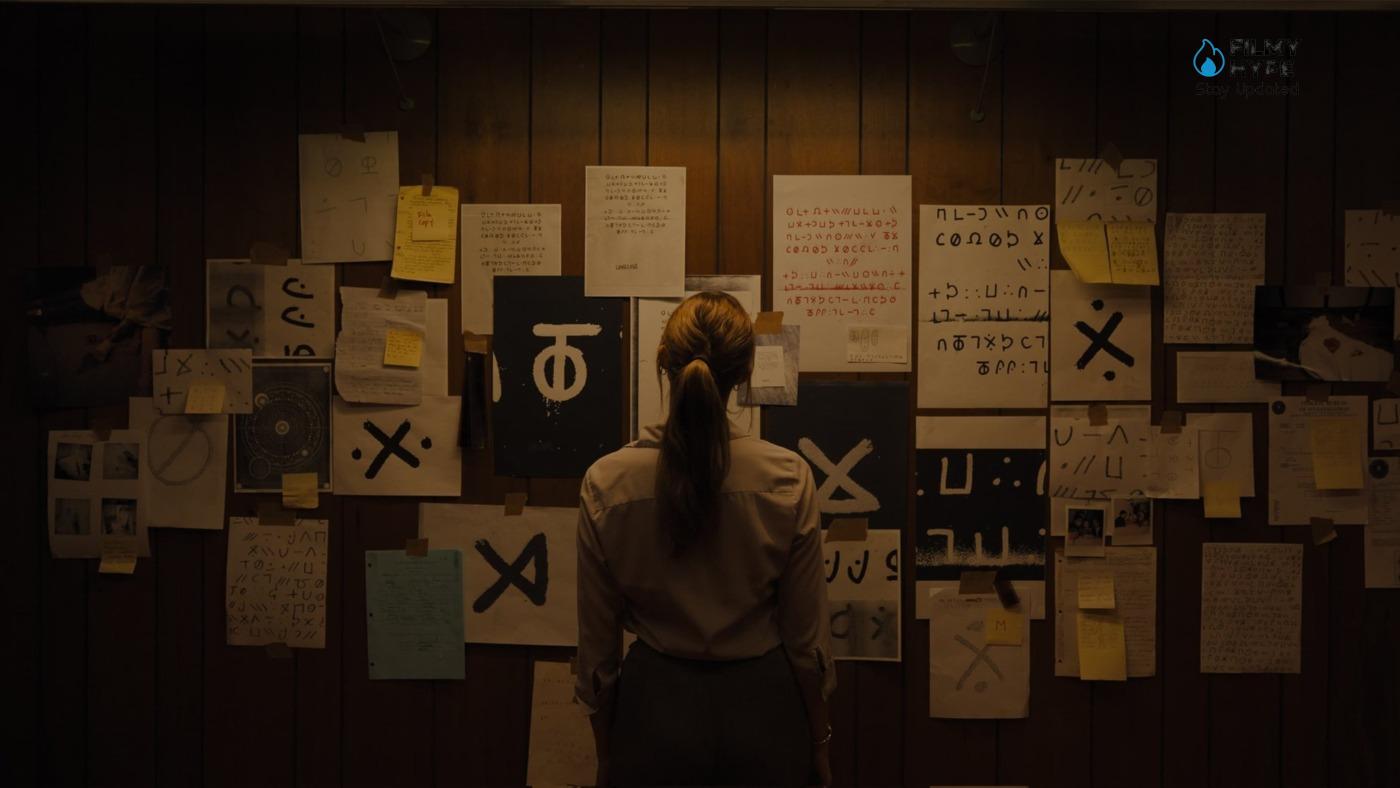
Why Does Longlegs Target Families with Daughters Born on the 14th?
Why were the targeted girls born on the 14th of the month? The reason may be related to a Bible passage, Revelation 13:1, which both Longlegs and Ruth cite on several occasions. The murders occur within six days before or after the birthday, a range that likely symbolizes the demonic number 666. While Longlegs does not confirm the reason behind the 14, he may be referring to Revelation 13:1 since 13 + 1 equals 14. The number seven is significant in the Bible, and its double represents completeness, divinity, and redemption. Longlegs may believe he is freeing the families through death.
Longlegs Ending: What Will Happen to Lee and Ruby?
The film ends on a cliffhanger, leaving the audience wondering what will happen to the protagonist and Ruby. Both culprits – Longlegs and Ruth – die by the end of the film, but the doll is not destroyed yet, implying that Longlegs, from the afterlife, could “pass the baton” to Harker herself to carry out her purposes in a hypothetical sequel. The fact that Harker does not shoot the doll suggests that she is now under some kind of control by the object. What if Lee becomes like the serial killer she tried to stop? Longlegs leaves Harker and Ruby alive, and a sequel could explore their future: will they become complicit in killing families, like Longlegs and Ruth before them?
The Meaning of the Ending?
Oz Perkins has stated in several interviews that the film was inspired by his family history, particularly his mother. Perkins is the eldest son of horror legend Anthony Perkins (Psycho) and photographer Berry Berenson; the couple married in 1973, when Berenson was pregnant with Perkins, and remained together until Anthony’s death from AIDS-related causes in September 1992. Throughout his career, there have been many rumors surrounding Anthony’s personal life and sexuality, something Oz has addressed in several interviews, explaining that his parents tried to shield him from what people said, but that this has nevertheless greatly influenced his work. The director has stated: ” Whenever I try to do something, I always try to start with myself. I grew up in a family with a very famous and visible father, who lived at least two lives and was a closeted homosexual or bisexual man. Everybody knew it, even my brother and I theoretically knew it, but we were never given the language to talk about it,” Perkins said. “It wasn’t part of our history”.
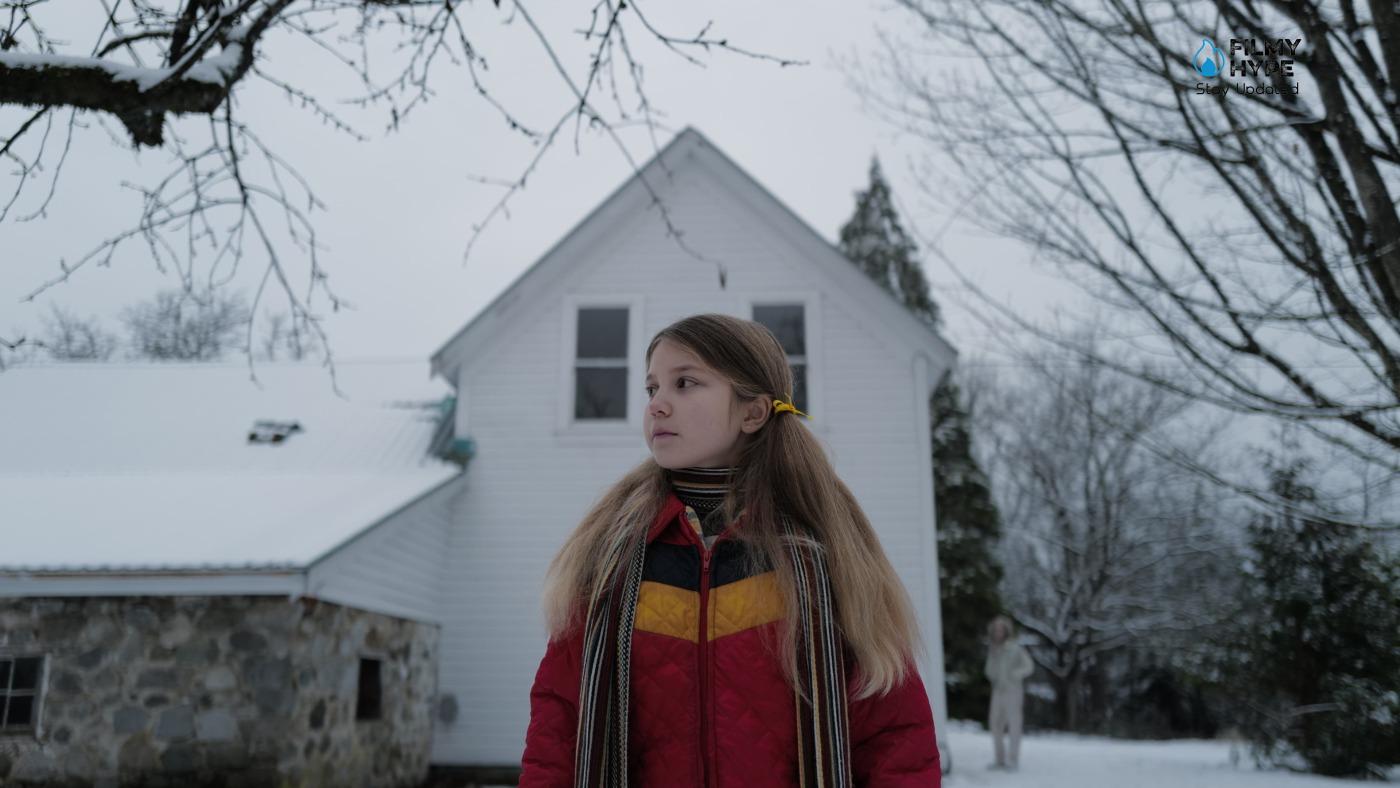
The director’s past, and his relationship with his parents, may have influenced the development of Longlegs in different ways: on the one hand, in the film, we have a mother who, to protect her daughter, keeps her in the dark about something truly terrible; on the other hand, this whole story could in some way represent the disintegration of the traditional family model (which Oz Perkins “witnessed” first-hand). The goal of Longlegs, which targets entire families (not just the daughter, who seems to be the intended victim) could be the destruction of a specific family structure: an initially loving father becomes violent and exterminates all the people he loves. Not coincidentally, Harker is the only one to have reached adulthood, raised only by her mother. At the same time, the ending suggests that violence can enter any home, regardless of how “healthy” a family may seem. The ending of the film also indicates that no one, no matter how good they think they are — can be driven to do horrible and violent things if they believe they are acting to protect someone or to do the right thing (like Ruth, who does everything to protect her daughter Lee). All the characters, at some point, are pushed or influenced to do something violent, an act they probably never imagined they would do. Even Harker, in the end, kills his mother and Agent Carter to save Ruby, continuing this cycle of endless violence.
Will They Catch the Killer Before It’s Too Late?
Lee’s Connection to Longlegs: Harker’s investigation reveals that the killer, Longlegs, is not only behind a series of Satanic murders, but also has a deep link to her past. In a key revelation, Lee discovers that she herself was attacked by Longlegs as a child, but was saved by her mother, Ruth (Alicia Witt), who made her forget the incident. This event resurfaces in her memory when she returns to her old home, and with it, a supernatural connection to the killer that has haunted her ever since. The Power of the Dolls: As her investigation continues, Lee discovers that Longlegs uses dolls to control his victims. These dolls, made in the image of the daughters of the murdered families, contain metallic spheres that emit an ethereal black smoke when destroyed.
While it’s not entirely explained how they work, it’s implied that these spheres have the power to corrupt parents, causing them to commit brutal murders in the name of Longlegs, suggesting that there’s a supernatural influence on play. The Truth About Lee’s Mother: The film takes a dark turn when it’s revealed that Lee’s mother Ruth is an accomplice to Longlegs. Ruth had made a pact with the killer to protect Lee as a child and has been delivering these cursed dolls to the victims’ families ever since. Her connection to Longlegs and devotion to his Satanic rituals make her a key player in the crimes. In the film’s culmination, Ruth becomes the final obstacle standing in the way of Lee ending his murder spree.
The Outcome?
The Final Ritual and Sacrifice: In a tense showdown, Lee races against the clock to save the daughter of his partner, Agent Carter (Blair Underwood), who has been targeted next by Longlegs and Ruth. Though he arrives too late to save Carter’s wife, he manages to stop Carter before he can kill his daughter. In an emotional showdown, Lee is forced to kill her own mother to end the Longlegs threat once and for all. The film leaves an ambiguous note regarding the fate of the doll Longlegs had intended for Carter’s daughter, hinting that evil may still be present, despite the killer’s death. A Haunting Ending: “Longlegs” leaves audiences with many questions, but also a sense of closure. Lee has managed to stop the killer and save an innocent, but the emotional toll and supernatural implications linger. The open ending suggests that though Longlegs has been defeated, the evil he unleashed might still lurk, waiting for its next chance.


